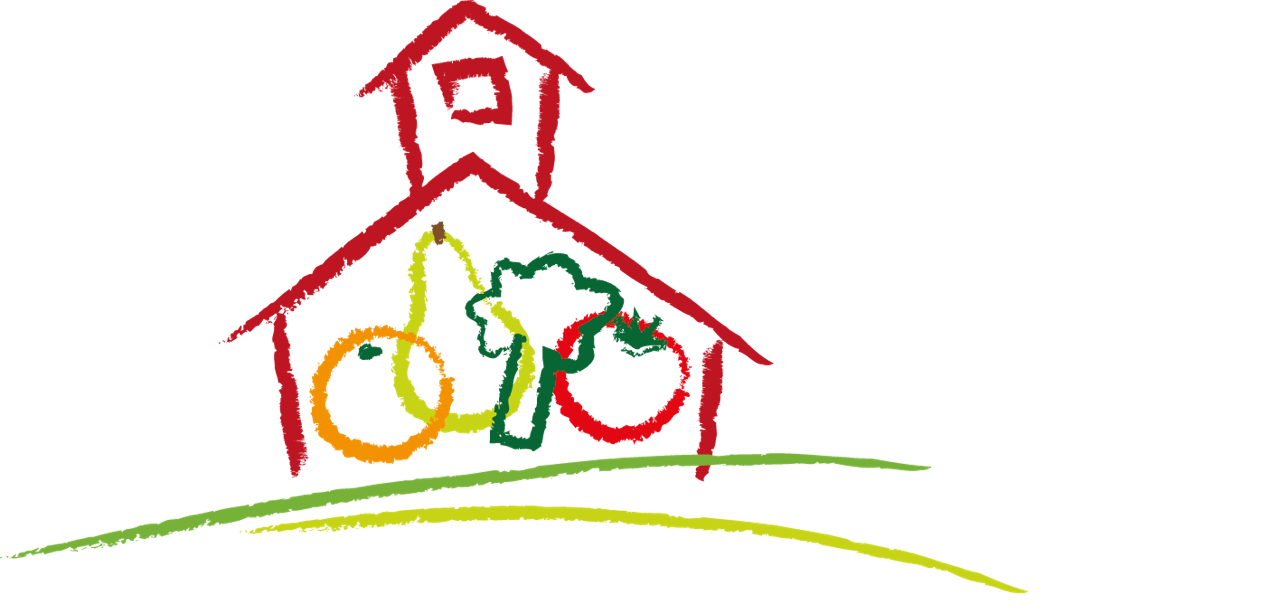Fresh Beginnings: Salad Bars and Farm to School Practices in the Cleveland Metro School District
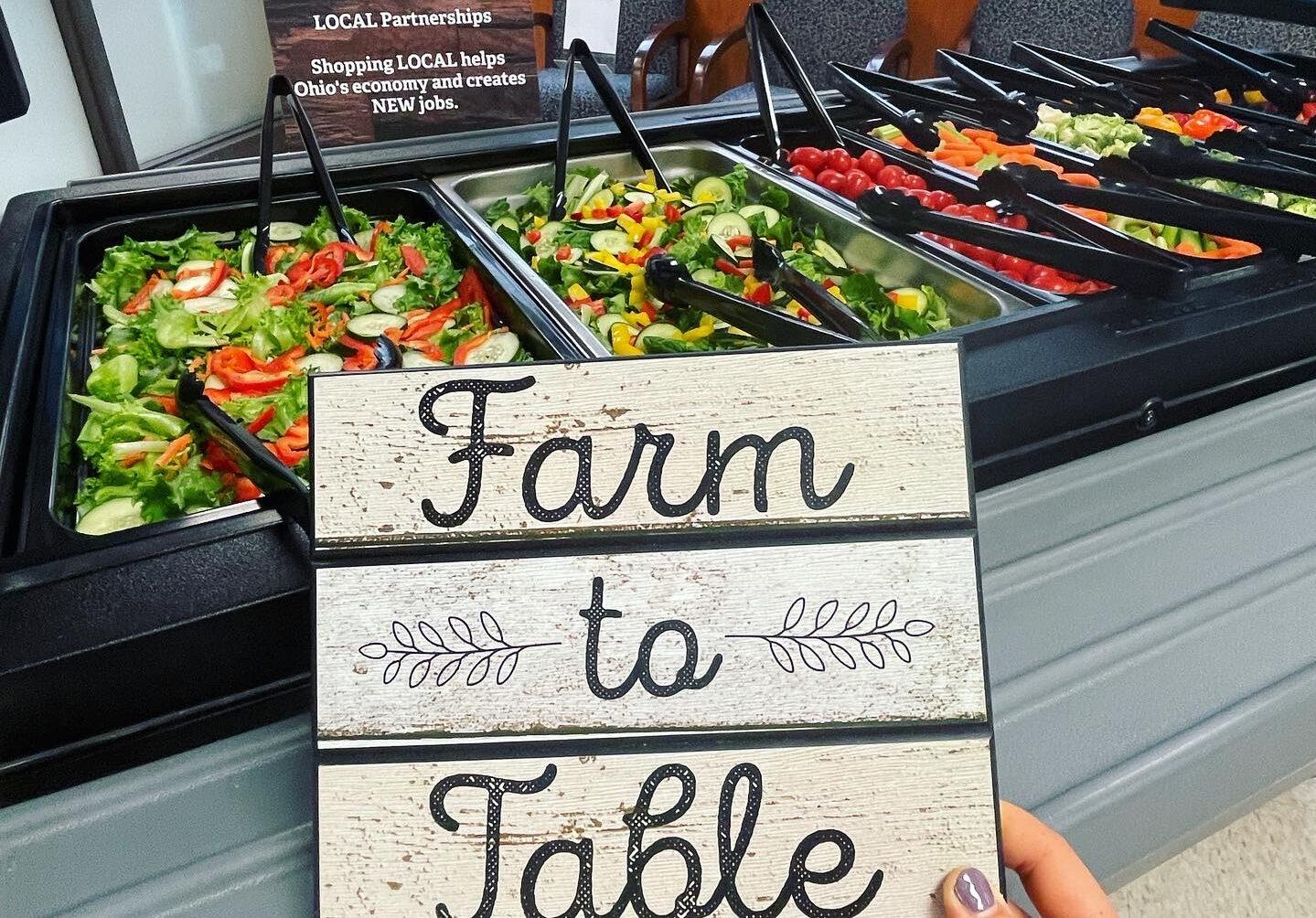
Fresh Beginnings: Salad Bars and Farm to School Practices in the Cleveland Metro School District
Location: Cleveland, Ohio
Schools: 87
Executive Director of Nutrition Services: Robert Gorman
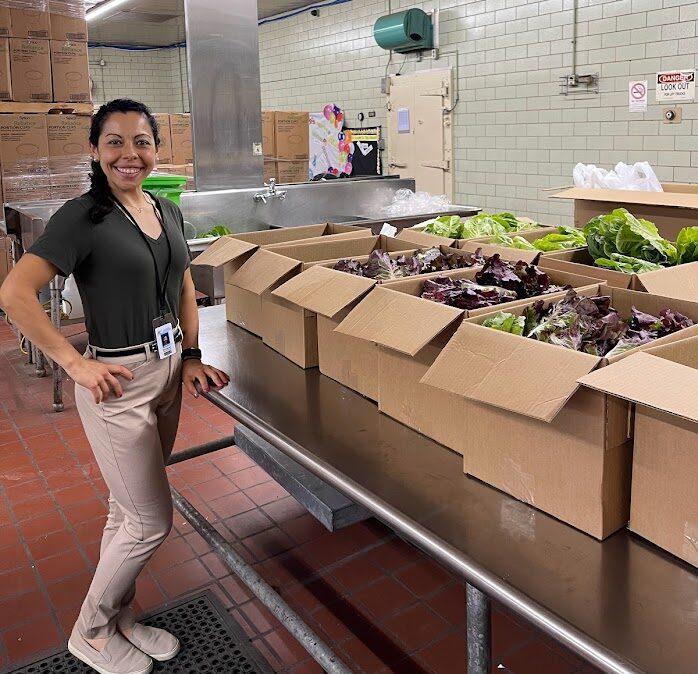
Rebecca Rodriguez’s journey from a certified pastry chef to a passionate advocate for nutritious school meals is as diverse as the fruits and vegetables she champions.
Rodriguez’s educational background spans from culinary arts to nutrition education, with a focus on childhood malnutrition through a public health lens. She’s held various roles in different cities and school systems, including working in Napa Valley, California and for the New York City Department of Education. Today, as the farm-to-school coordinator for the Cleveland Metropolitan School District’s Food Services Department, she draws from her multifaceted experiences to spearhead innovative school food. We caught up with Rebecca to learn about the exciting initiatives taking root in the district.
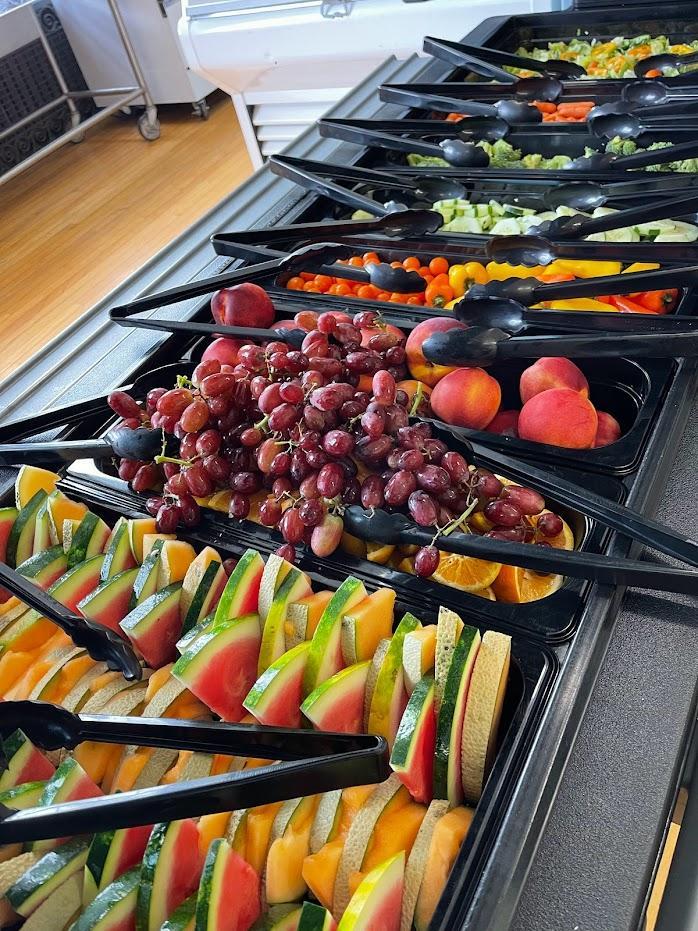
Salad Bars: A Fresh Approach
Cleveland Metro’s salad bar program, launched just over a year ago, is a significant stride toward promoting healthy eating habits among students. With 16 schools currently equipped with fruit and vegetable bars, and plans to expand to 19 this spring, the initiative has been met with enthusiasm from both students and staff.
Funding for the salad bars primarily came from grants, with the USDA Farm to School Grant playing a pivotal role. Rodriguez is actively pursuing additional grant opportunities to add fruit and vegetable bars to the remainder of the district’s schools, where students are already requesting salad bars for their schools.
Training and Education
Salad bar training sessions for staff focused not only on food safety and handling, but also on the nuances of preparing and presenting fresh produce.
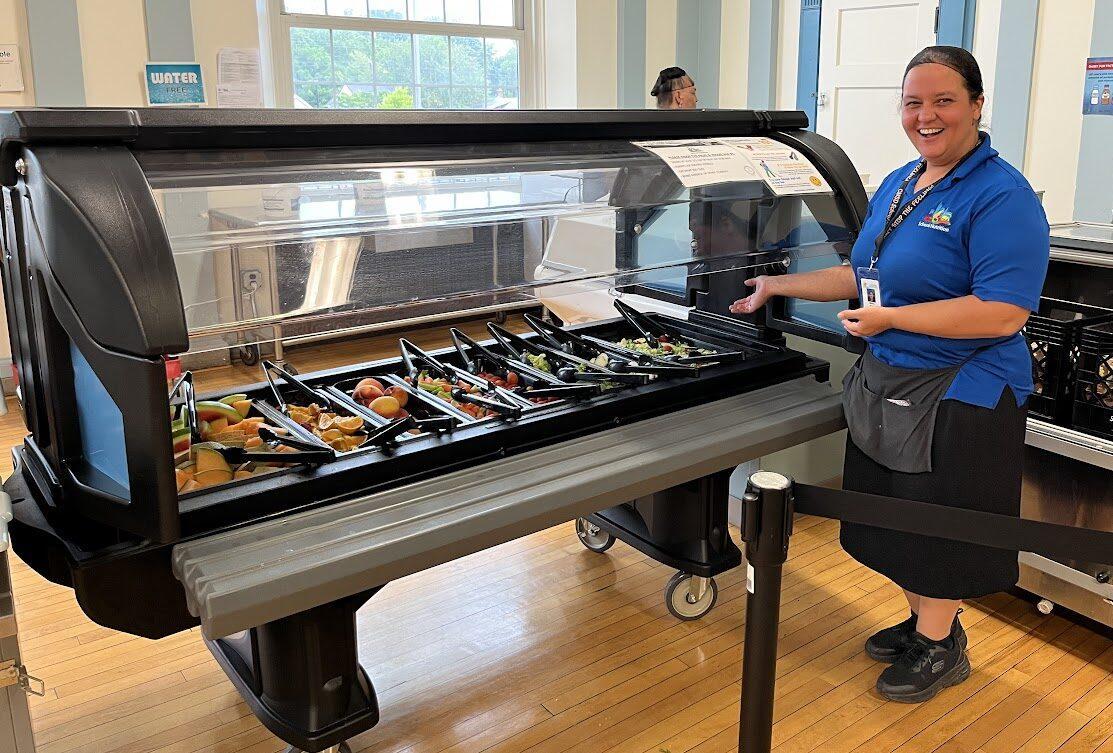
“This year we brought on a new fresh produce distributor. So it was training on their ordering system. Just how to set it up, and how to safely receive and store the produce. For example, bright green pears don’t get thrown right into the fridge — we let them come to room temperature until they’re yellow and then they go in the fridge.” – Rodriguez
Staff training also emphasized the importance of understanding students’ preferences and adjusting orders accordingly, as well as proper processing for produce items, such as how to properly cut larger items like watermelon and cantaloupes as well as smaller items like kiwi and grapefruit.
Harvest of the Month: Celebrating Local Produce
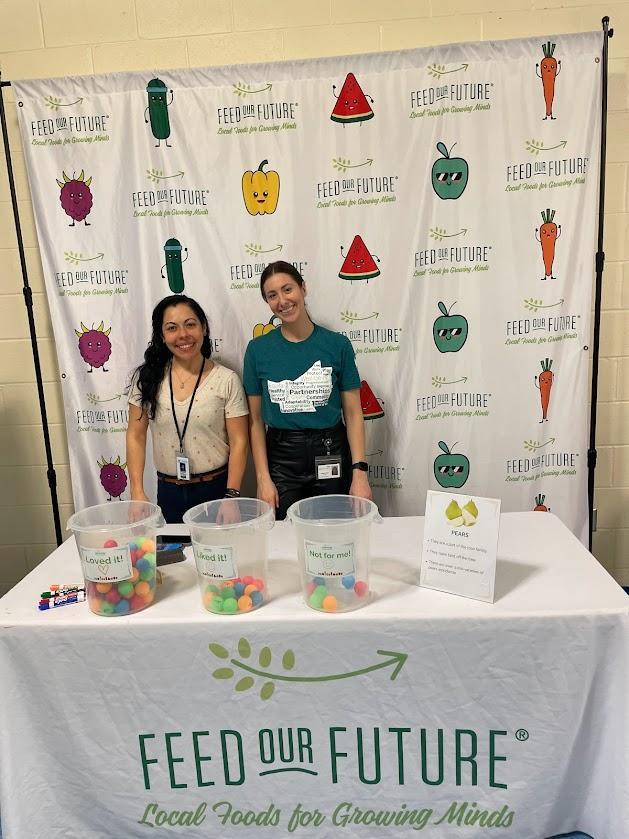
Education doesn’t stop at the staff level. Rodriguez and her team, along with support from Feed Our Future, — a Cuyahoga County Board of Health organization that supports local procurement in Cuyahoga County, Ohio — engages students in taste-testing sessions, introducing them to new and seasonal items like kiwi, grapefruit, pears, and sungold tomatoes. These experiences not only broaden students’ palates but also foster a deeper appreciation for where their food comes from.
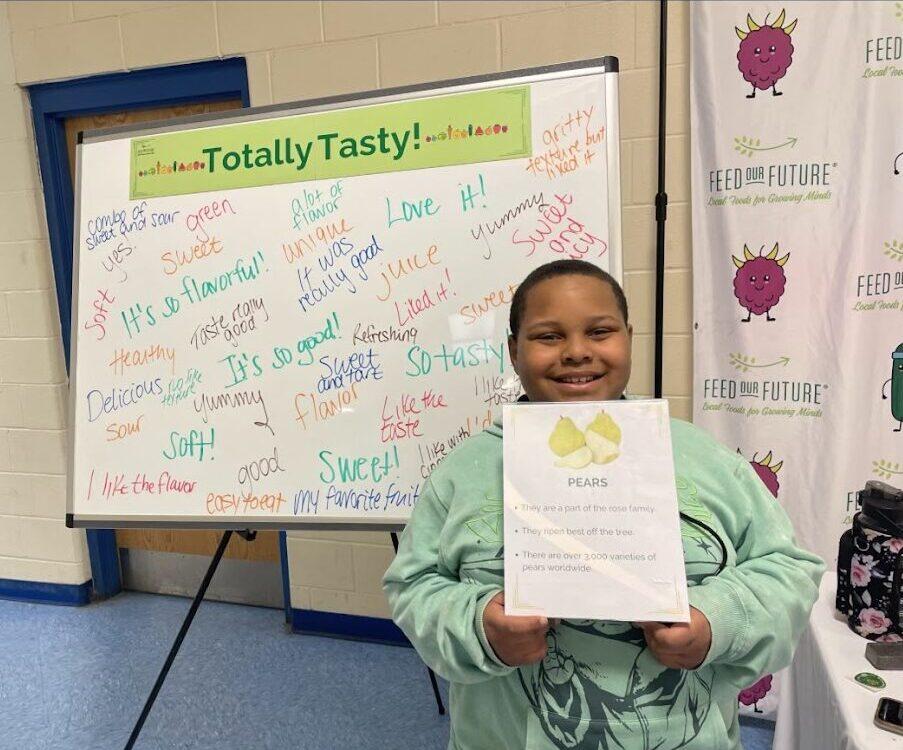
The Cleveland Metro School District team along with Feed Our Future also integrates Ohio Harvest of the Month promotions into the cafeteria. These initiatives showcase a monthly locally grown product — including apples, sweet potatoes, hydroponic lettuce, and chickpeas — reinforcing the connection between food, community, and health.
“We are also really getting into local and hyper-local procurement to source produce that is culturally represented.” Rodriguez
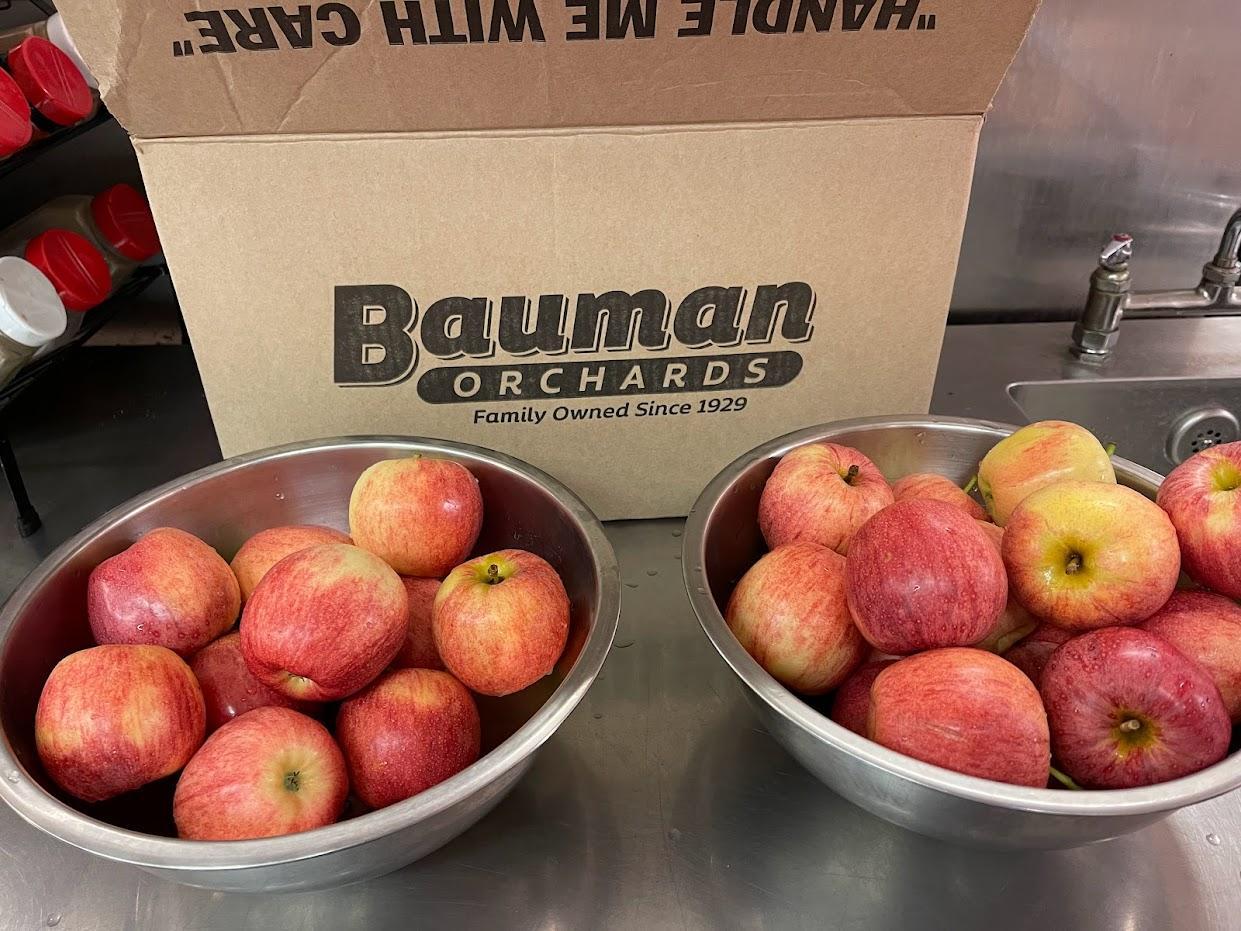

Looking Ahead: A Greener Future
As the district’s salad bar program continues to evolve, Rodriguez remains committed to exploring new avenues for sustainability. Cleveland Metro has recently incorporated hydroponics into the program, using Flex Farm growing towers to expand their salad bar offerings.
Starting next school year, the district will be partnering with FoodCorps, taking on eight service members for the 24-25 school year. FoodCorps service members will oversee the hydroponic towers, working with Rodriguez to keep track of maintenance, cleaning, and harvest schedules. The ultimate goal with the towers will be to produce greens and herbs destined for the schools’ salad bars and new menu items, while providing valuable learning experiences for students. Rodriguez looks forward to being able to grow cilantro for their new cilantro lime rice recipe that has been successfully tested recently with students in the district.
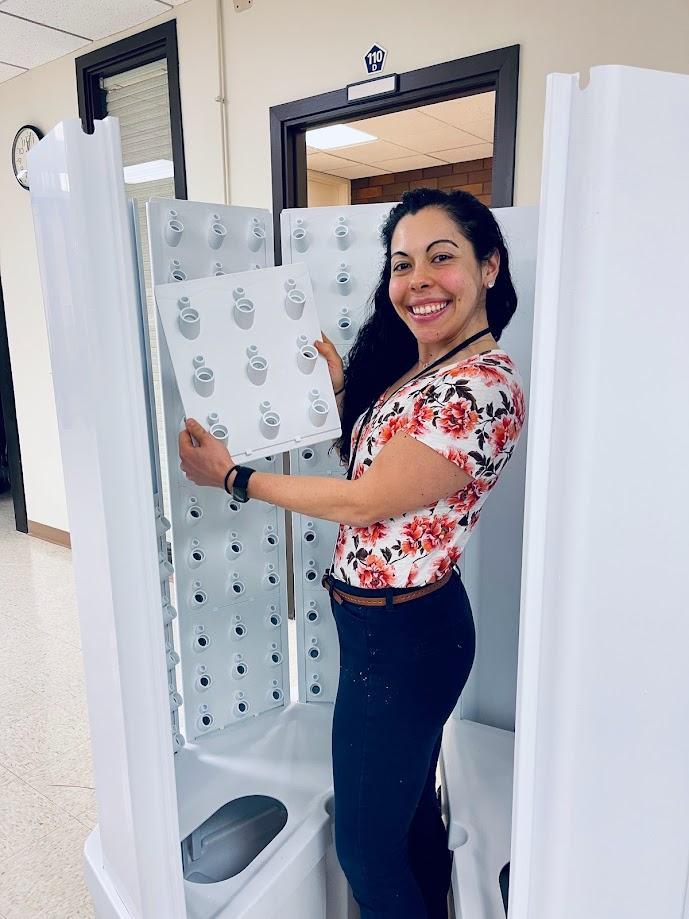
“I think one statement that is really just driving my whole work in general is teaching kids where their food comes from.” -Rodriguez
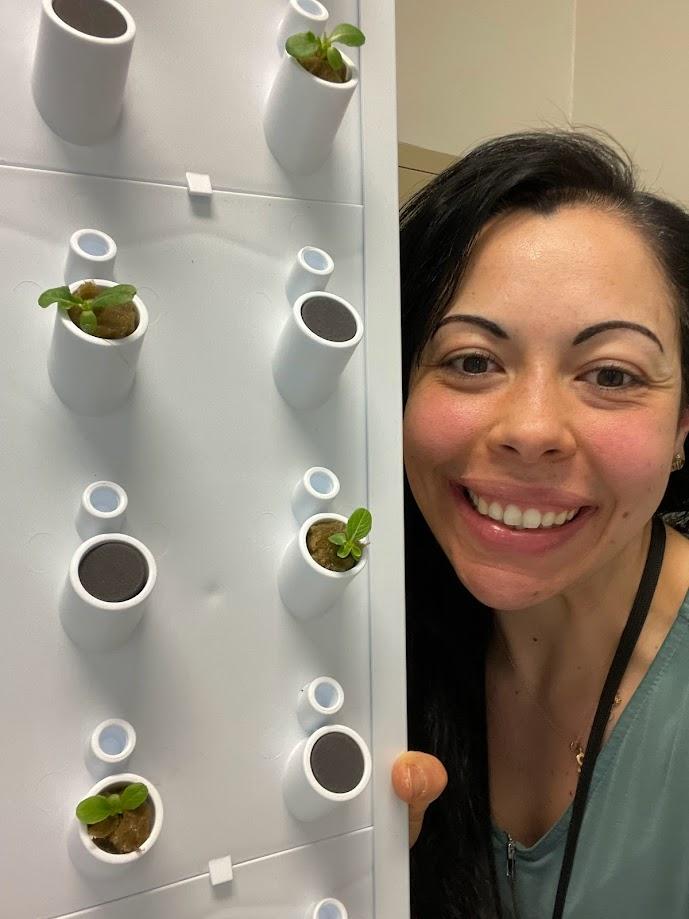
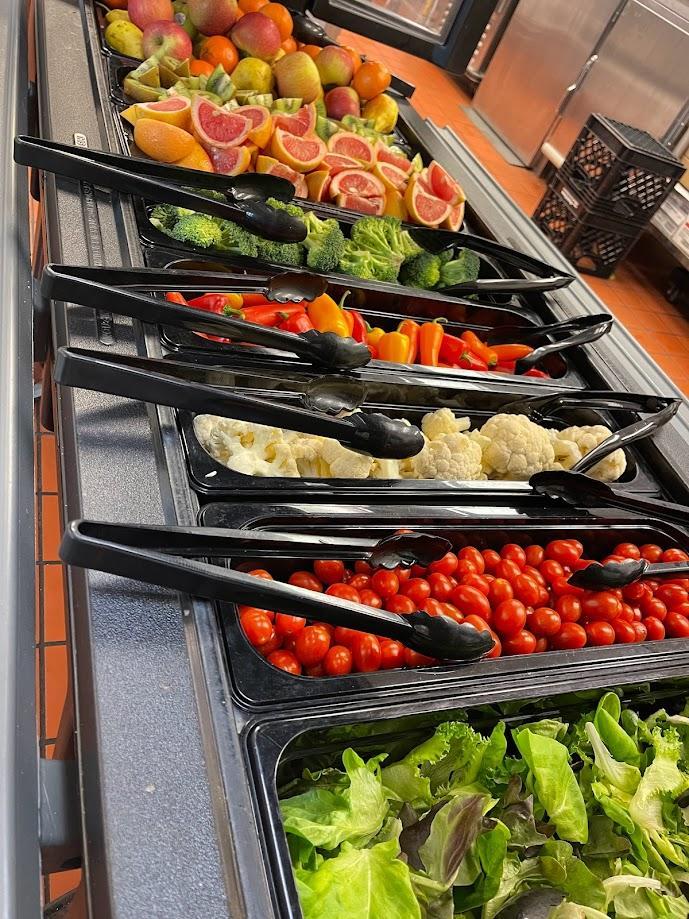
The Cleveland Metro School District team just recently started experimenting with scratch cooked items on the salad bar including items such as corn salsa and hummus, and Rodriguez looks forward to offering these items regularly beginning next school year.
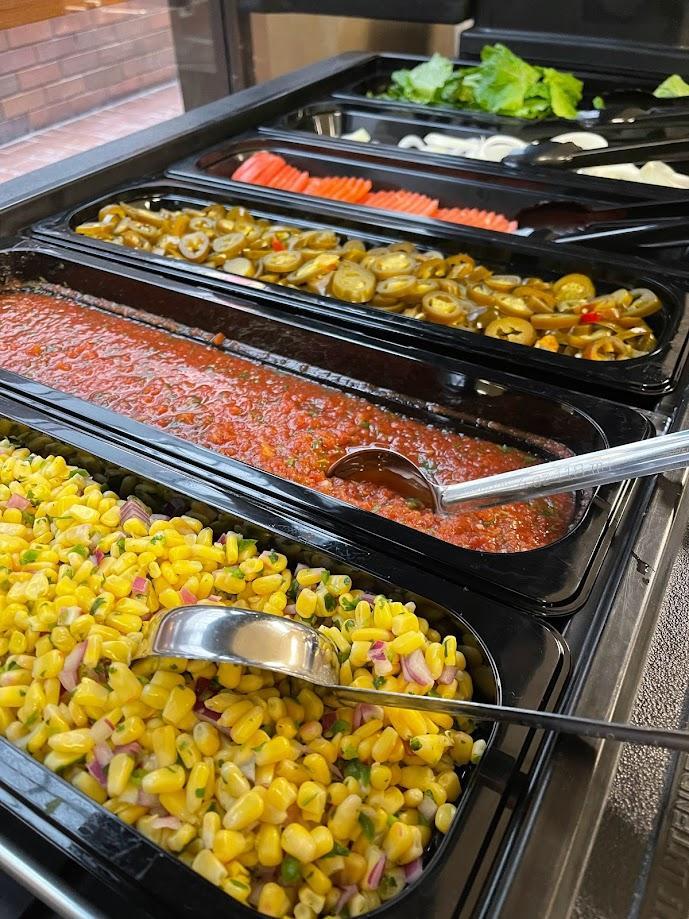
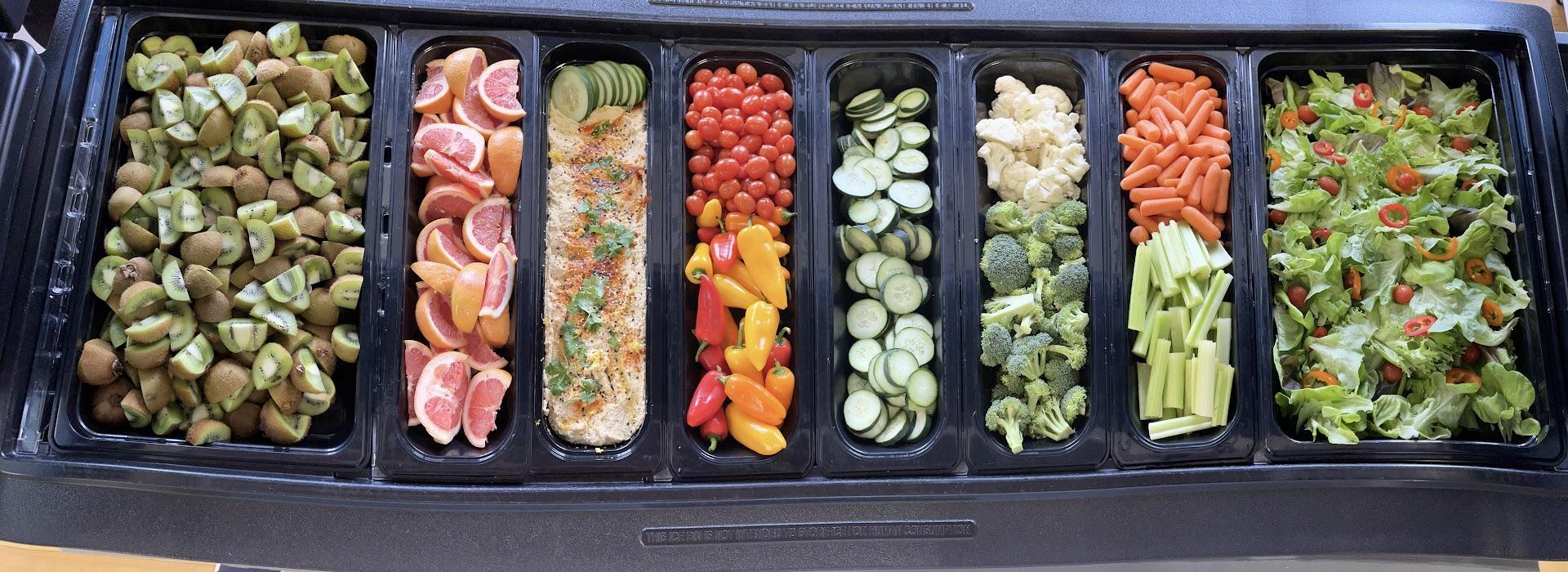
Rodriguez is also part of the National Farm to School Coordinators Group, which works with farm-to-school coordinators nationwide to share best practices and lessons learned. National Farm to School Network’s goal with this project is to increase the number of dedicated farm-to-school coordinator positions in school districts across the country — which will result in expanded capacity for locally sourced food items and scratch cooking in schools.
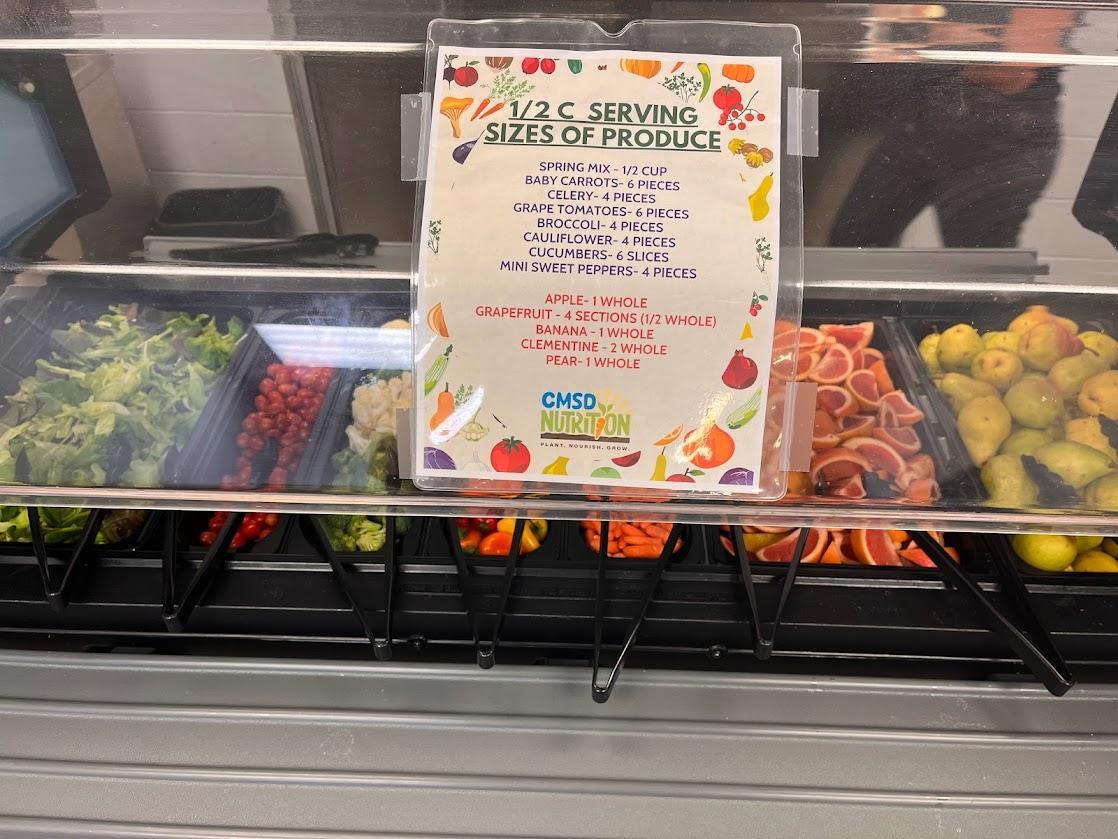
The salad bar program in the Cleveland Metropolitan School District goes beyond providing nutritious meals — it’s about cultivating a culture of wellness, sustainability, and food literacy. With Rodriguez’s leadership and the support of dedicated staff and partners, the seeds of change have been planted and the harvest is bound to be bountiful.
Follow the Cleveland Metropolitan School District Nutrition Services team on Instagram: www.instagram.com/cmsdnutrition/
